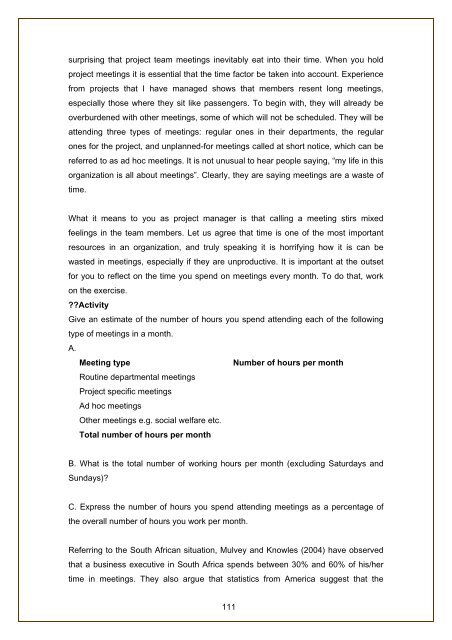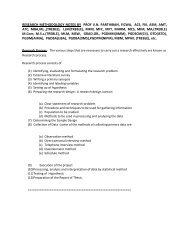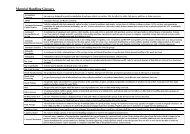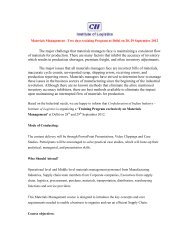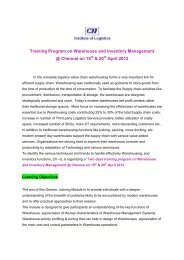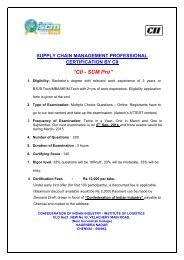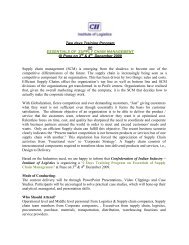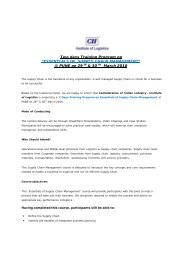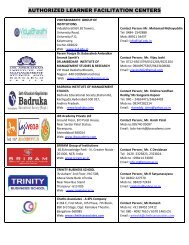successful project management - Commonwealth of Learning
successful project management - Commonwealth of Learning
successful project management - Commonwealth of Learning
Create successful ePaper yourself
Turn your PDF publications into a flip-book with our unique Google optimized e-Paper software.
surprising that <strong>project</strong> team meetings inevitably eat into their time. When you hold<br />
<strong>project</strong> meetings it is essential that the time factor be taken into account. Experience<br />
from <strong>project</strong>s that I have managed shows that members resent long meetings,<br />
especially those where they sit like passengers. To begin with, they will already be<br />
overburdened with other meetings, some <strong>of</strong> which will not be scheduled. They will be<br />
attending three types <strong>of</strong> meetings: regular ones in their departments, the regular<br />
ones for the <strong>project</strong>, and unplanned-for meetings called at short notice, which can be<br />
referred to as ad hoc meetings. It is not unusual to hear people saying, “my life in this<br />
organization is all about meetings”. Clearly, they are saying meetings are a waste <strong>of</strong><br />
time.<br />
What it means to you as <strong>project</strong> manager is that calling a meeting stirs mixed<br />
feelings in the team members. Let us agree that time is one <strong>of</strong> the most important<br />
resources in an organization, and truly speaking it is horrifying how it is can be<br />
wasted in meetings, especially if they are unproductive. It is important at the outset<br />
for you to reflect on the time you spend on meetings every month. To do that, work<br />
on the exercise.<br />
??Activity<br />
Give an estimate <strong>of</strong> the number <strong>of</strong> hours you spend attending each <strong>of</strong> the following<br />
type <strong>of</strong> meetings in a month.<br />
A.<br />
Meeting type<br />
Number <strong>of</strong> hours per month<br />
Routine departmental meetings<br />
Project specific meetings<br />
Ad hoc meetings<br />
Other meetings e.g. social welfare etc.<br />
Total number <strong>of</strong> hours per month<br />
B. What is the total number <strong>of</strong> working hours per month (excluding Saturdays and<br />
Sundays)?<br />
C. Express the number <strong>of</strong> hours you spend attending meetings as a percentage <strong>of</strong><br />
the overall number <strong>of</strong> hours you work per month.<br />
Referring to the South African situation, Mulvey and Knowles (2004) have observed<br />
that a business executive in South Africa spends between 30% and 60% <strong>of</strong> his/her<br />
time in meetings. They also argue that statistics from America suggest that the<br />
111


